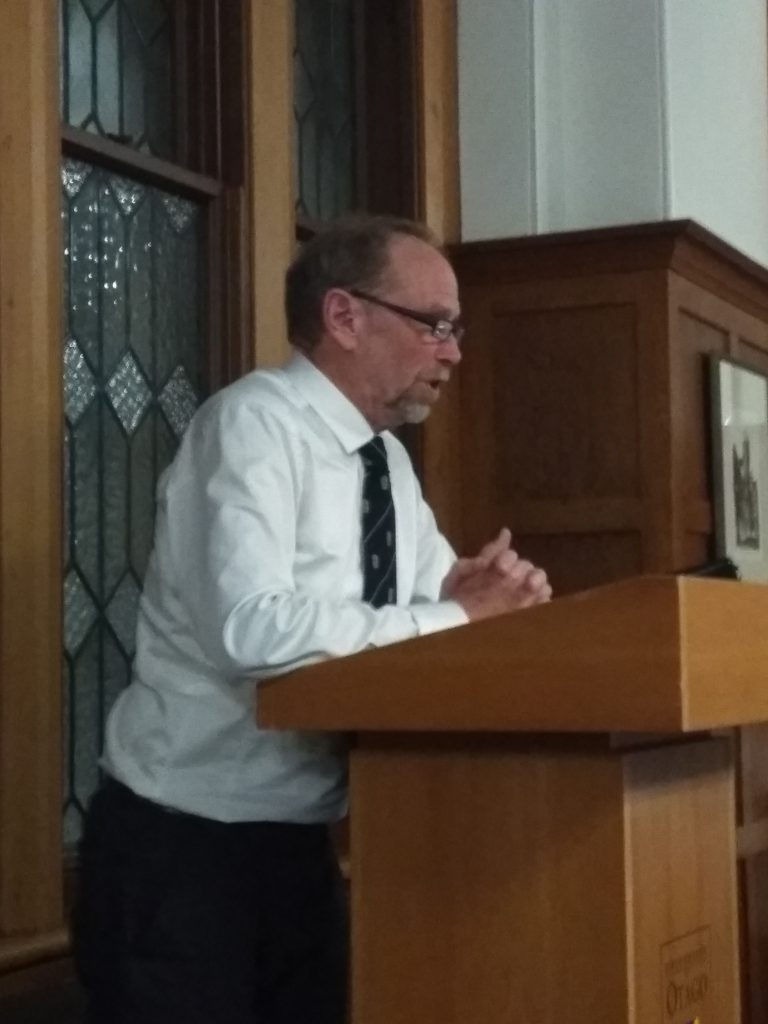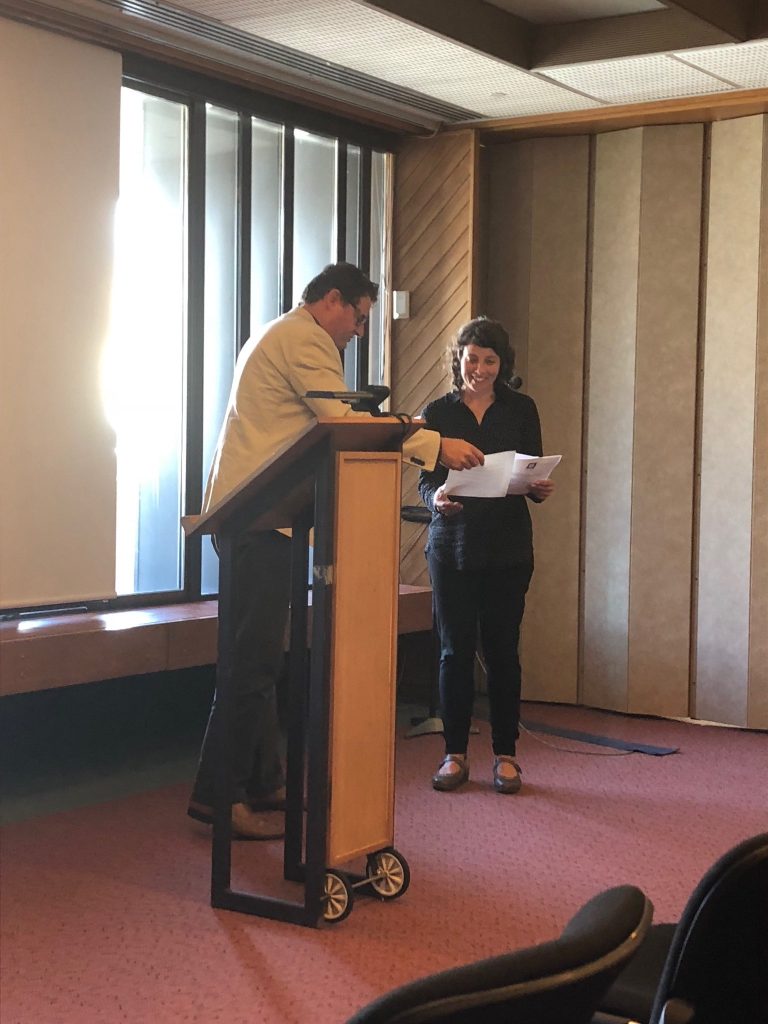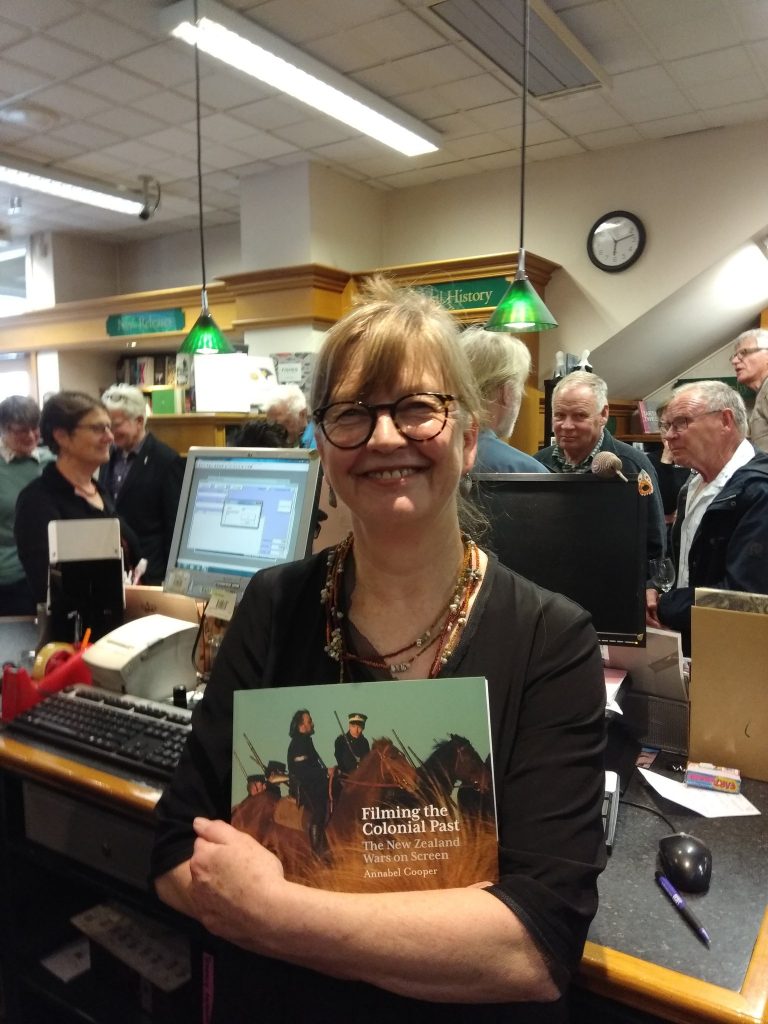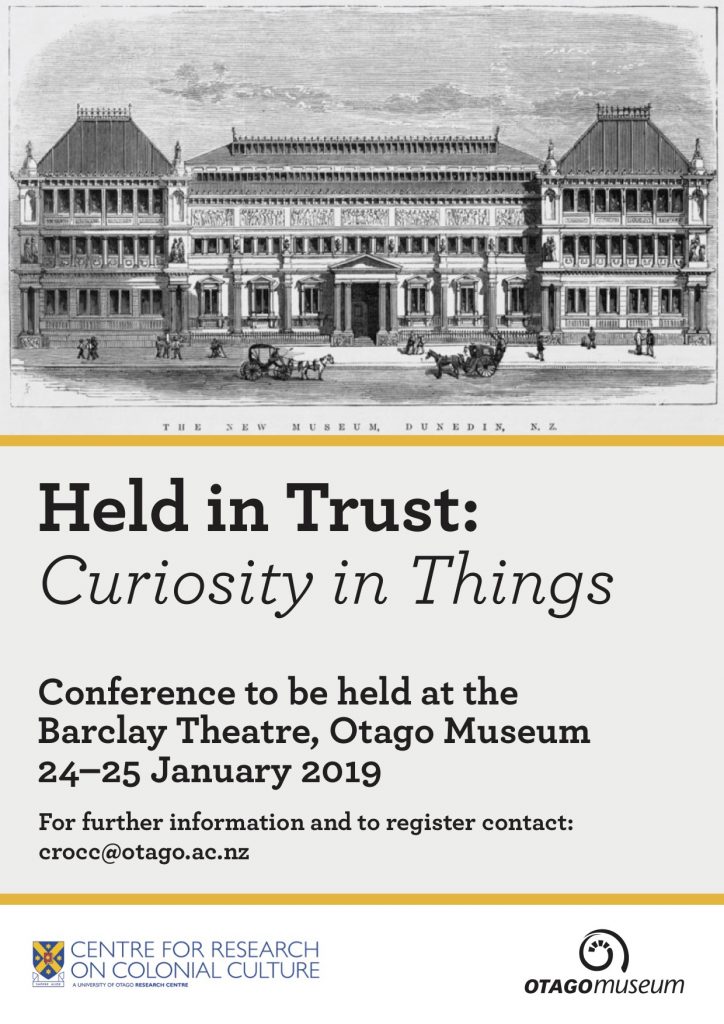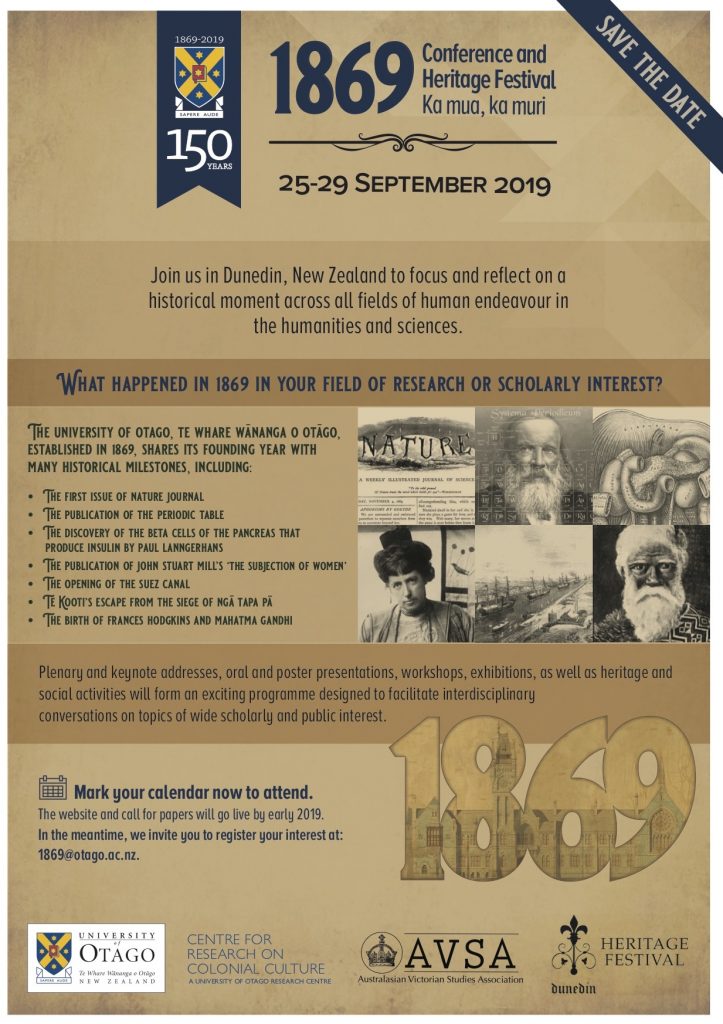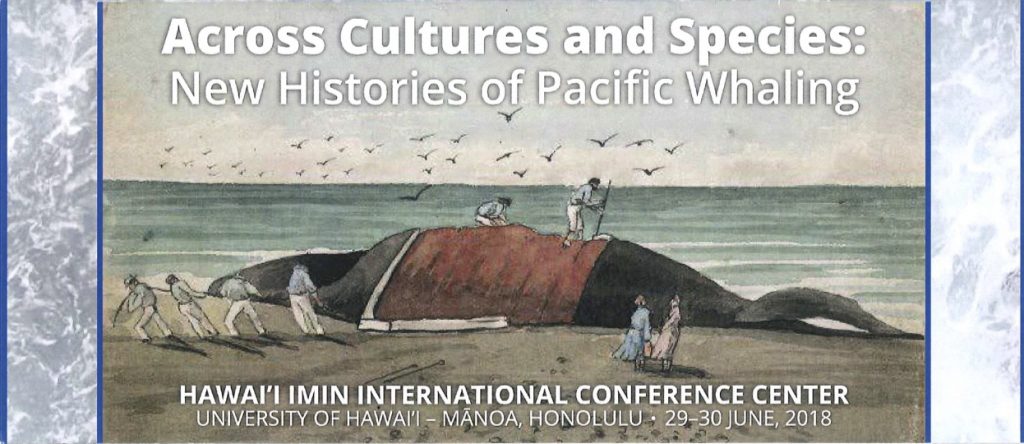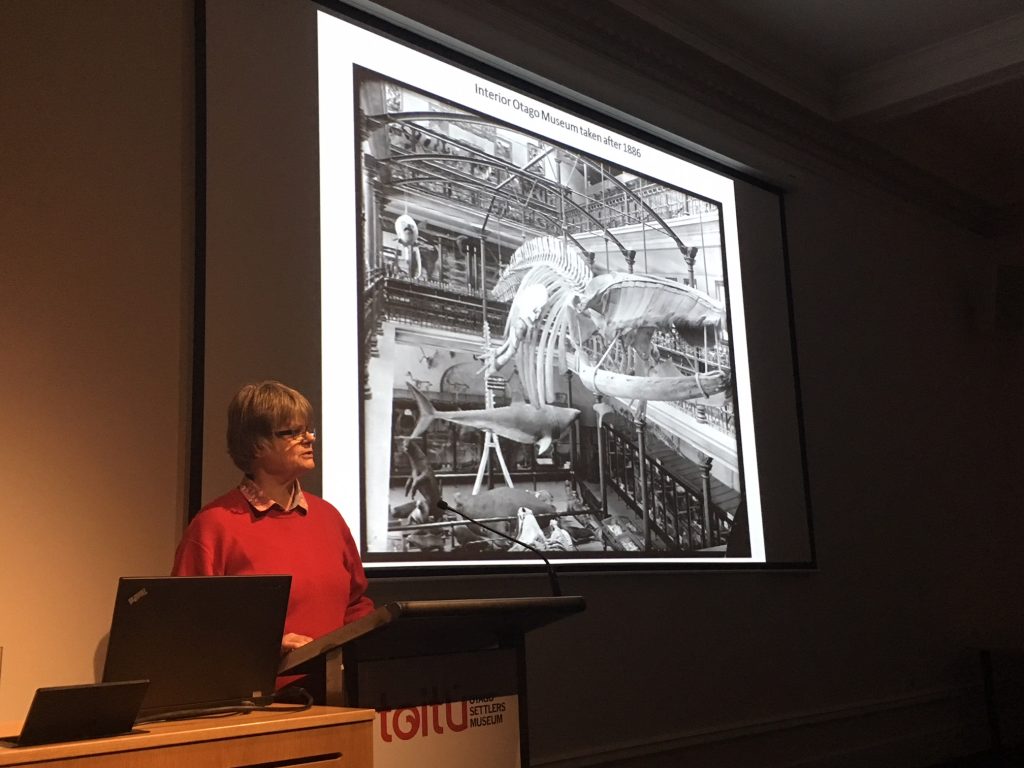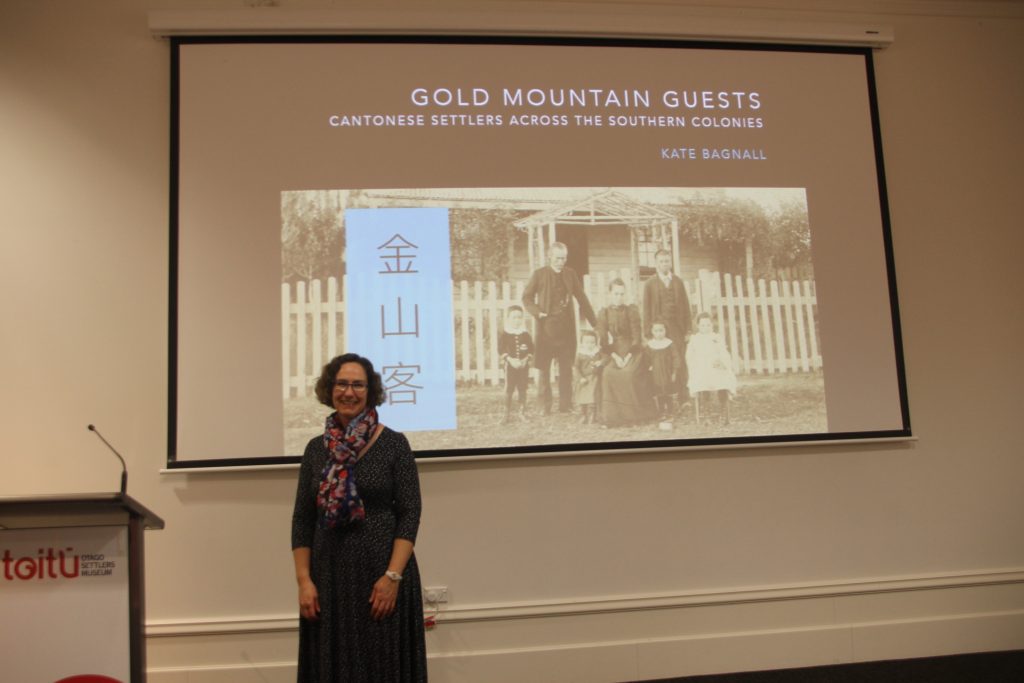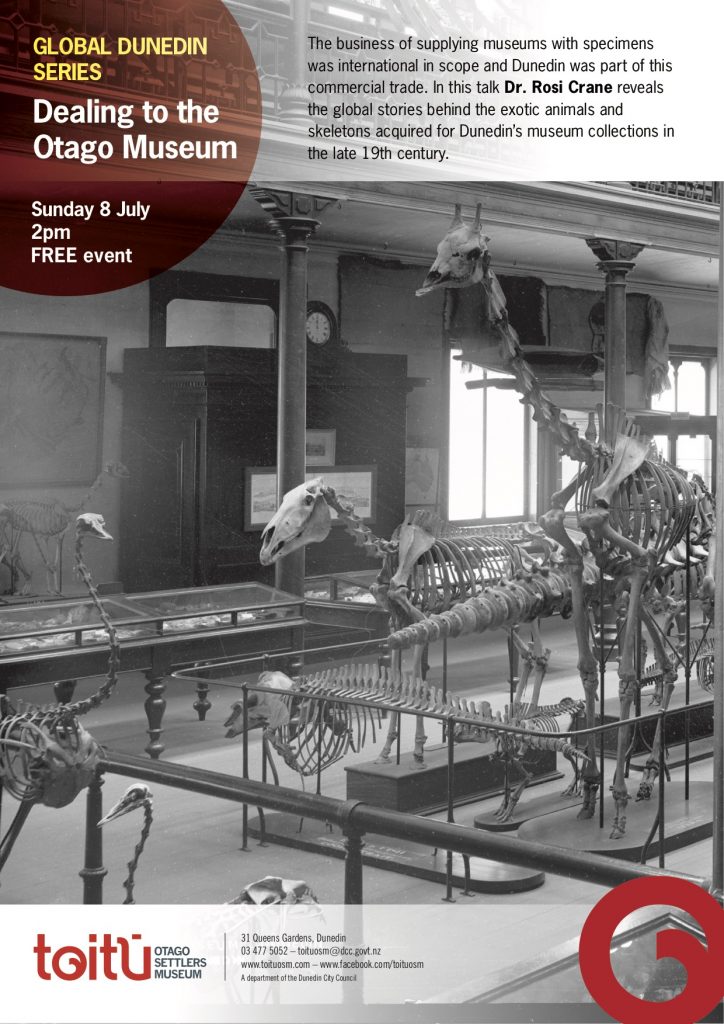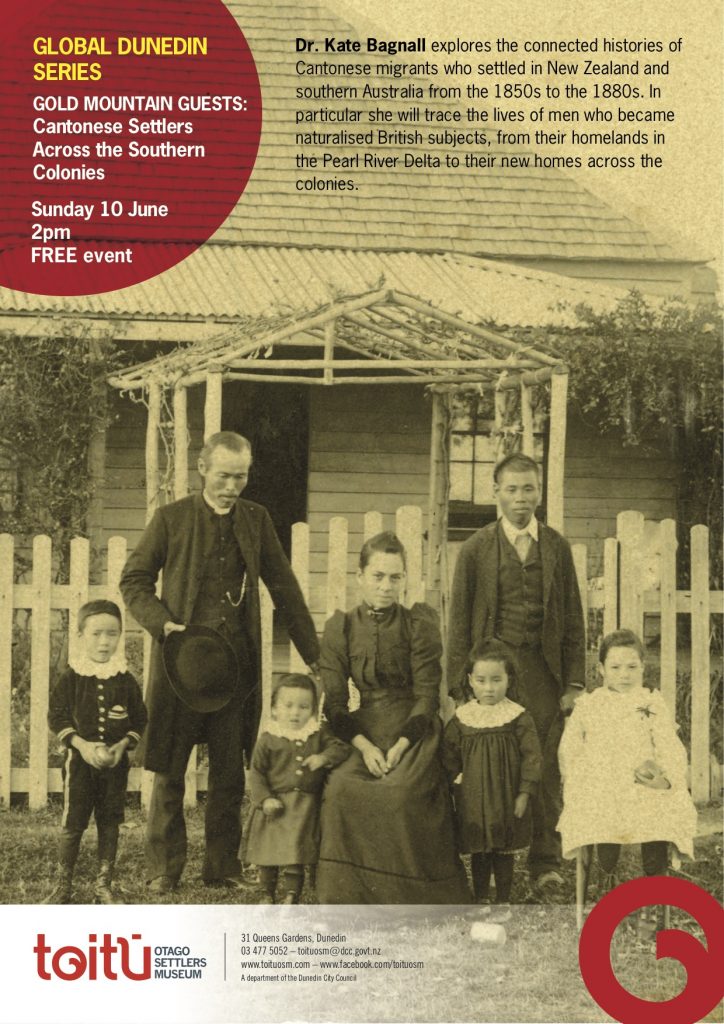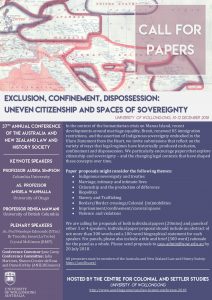Marsden success for Kate Stevens
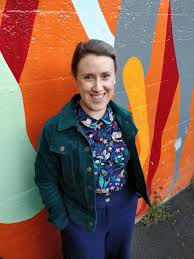 The Centre is really happy for the Marsden success of one of our associate members, Dr Kate Stevens, now based in the History programme at the University of Waikato. Her project, Urban island: Histories of dispossession and belonging in Suva, gained a Fast Start Marsden award in the 2020 round.
The Centre is really happy for the Marsden success of one of our associate members, Dr Kate Stevens, now based in the History programme at the University of Waikato. Her project, Urban island: Histories of dispossession and belonging in Suva, gained a Fast Start Marsden award in the 2020 round.
Kate is a former History student at Otago, who completed her PhD at Cambridge University in 2015, on colonial criminal justice in New Caledonia, Fiji and Vanuatu, then undertaking a postdoc back at Otago with Professor Judy Bennett’s project on the history of coconuts.
This has been a great year for Kate! As well as her Marsden, she won a teaching excellence award at Waikato, and a Camargo Fellowship. Each year, the Carmago Foundation Core Program brings 18 artists, thinkers, and scholars for residential scholarships in Cassis, France as part of its mission to support research in the Arts and Humanities. Kate will be joining the spring 2021 cohort (travel restrictions permitting) for 11 weeks to work on a new project examining the history of smell in the French colonial empire, and its legacies in contemporary products, tourism, and ideas of place. You can read more about Kate’s research on her website.
Congratulations, Kate!
Centre News
Over the past few months the Centre has been busy with symposia and planning our 2019 schedule. What follows are some recent highlights in Centre activities.
Throughout the year we have sponsored a number of events, notably the Global Dunedin Speaker Series at Toitū organised by Angela Wanhalla, which was brought to a close on 14 October with a lecture from Dr. Ben Schrader who spoke to a large and lively audience about the links between place, space, urban culture and colonial history. The Centre thanks all the presenters who contributed to the series: Tony Ballantyne, Charlotte Macdonald, Michelle Schaaf, Kate Bagnall, Rosi Crane, Lea Doughty, and Jill Haley.
The Centre closed 2018 with two symposia. On 1-2 November, Lachy Paterson, Megan Pōtiki and Paerau Warbrick co-organised and hosted a symposium on Māori texts at the Hocken Collections. He Tuhinga nō Neherā: Texts, Contexts and Resonances featured scholars who spoke about and/or performed a range of texts. Michael Reilly discussed orality and voice in Kāi Tahu traditions collected by the German missionary Johannes Wohlers; Lachy Paterson examined the writings of Wiremu Taratoa; Tahu Potiki used the writings of Matiaha Tiramorehu with relevance to occupancy of Moeraki; Paul Diamond addressed texts that no longer exist in their original form or are held overseas; and Barbara Brookes spoke about the maiden speeches of Iriaka Ratana and Whetu Tirakatene-Sullivan. Many drew upon documents in family collections, such as Megan Pōtiki who talked about the dreams her tūpuna Raniera Ellison recorded in his journal; Rangi Matamua spoke about Māori knowledge of the stars written in a private ledger; Paerau Warbrick used family letters, as did Poia Rewi; Anaru Eketone discussed a Ngāti Maniapoto petition led by his grandfather; Tangiwai Rewi examined the creation of a waiata; Tonga Karena looked at Indigenous discourses of peace traditions at Parihaka through haka; and Matiu Payne looked at an affidavit from a Ngāti Mutunga kuia as part of a discussion about whāngai rights.
We also hosted Making Rural New Zealand, a symposium that celebrated the career of Professor Tom Brooking who is retiring after 41 years at the University of Otago. Co-organised by Tony Ballantyne and Jane McCabe, the symposium featured talks by Tom’s friends, colleagues, research collaborators and former students. Keynote presentations from Graeme Wynn, Eric Pawson, Jim McAloon and Jane McCabe bookended each day, with shorter presentations from Jim Williams, Ann Pomeroy, Hugh Campbell, Peter Holland, Vaughan Woods, Paul Star, Katie Cooper, Tony Ballantyne, Jonathan West, and James Beattie. The symposium closed with a celebratory dinner in honour of Tom.
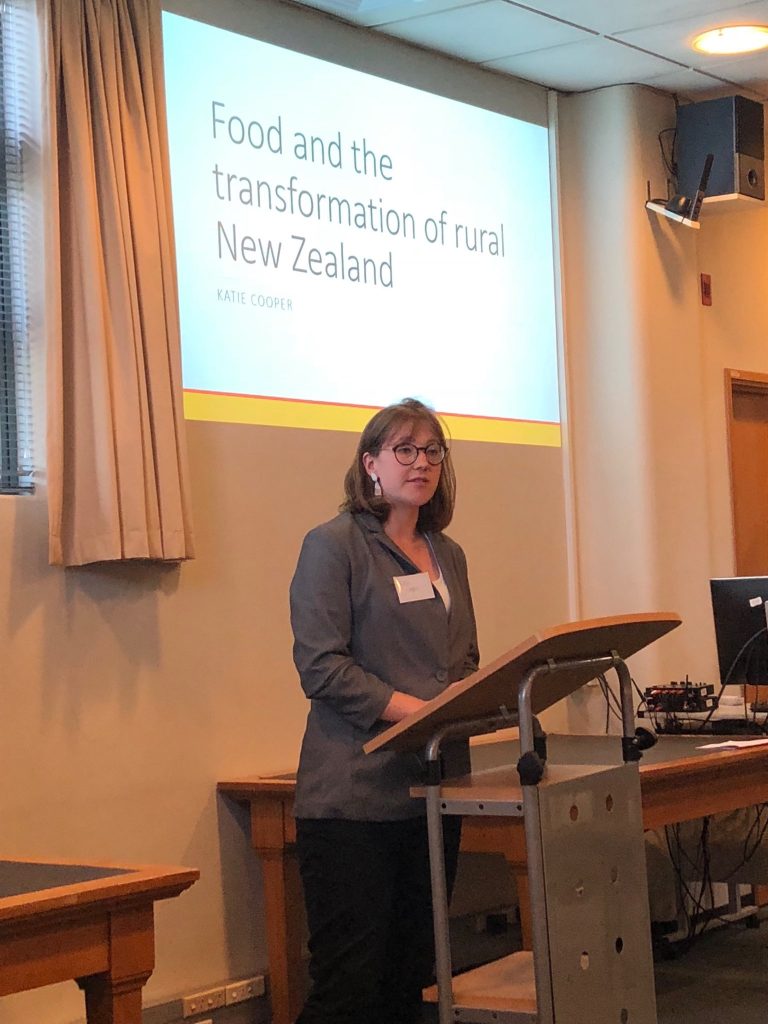
Katie Cooper (Te Papa Tongarewa) presents at the Rural New Zealand symposium in honour of Tom Brooking (photograph by @OtagoBallantyne)
In the final months of 2018 Centre members have gained a number of awards and prizes. Congratulations to Jane McCabe who was presented with the Archives and Records Association of New Zealand Ian Wards Prize for her book Race, Tea and Colonial Resettlement (Bloomsbury, 2017) at a function in Dunedin on 22 November. Jane shares the prize with Shaunnagh Dorsett.
Barbara Brookes continued to gather accolades, winning the prestigious Royal Society Te Apārangi Humanities Aronui Medal for her commitment and contribution to women’s history and New Zealand history more generally.
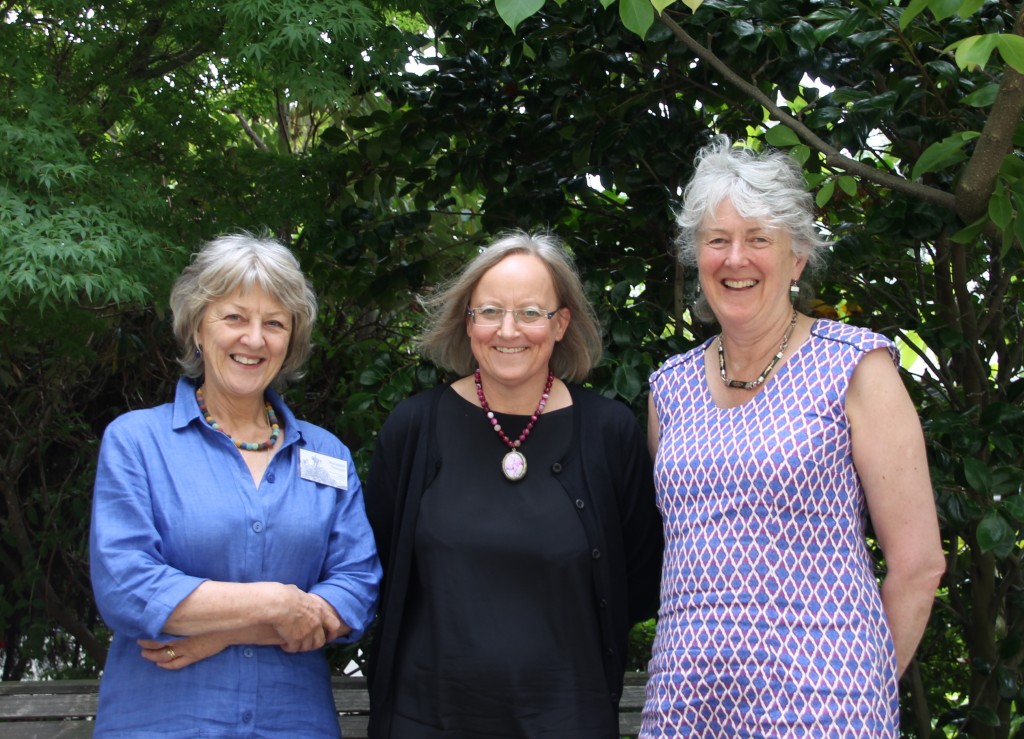
Friends and collaborators: Margaret Tennant, Charlotte MacDonald and Barbara Brookes (photograph by Lachy Paterson)
Kate Stevens and Angela Wanhalla were awarded the Journal of Pacific History’s prize for best article published in 2016-17, and in November Lachy Paterson and Angela Wanhalla were awarded a Royal Society Te Apārangi Marsden Grant (2019-2021) for a project on the histories and legacies of the Māori home front during World War II.
During 2018 a number of publications seeded at Centre events appeared: New Zealand and the Sea, edited by Frances Steel (Bridget Williams Books); Pacific Futures, co-edited by Barbara Brookes (University of Hawaii Press); and Indigenous Mobilities, edited by Rachel Standfield (ANU Press). In addition to these edited books, several special journal issues have appeared from workshops and symposia funded by the Centre. These include a special issue of History of Photography (edited by Jane Lydon and Angela Wanhalla) on Indigenous photographies; a special issue of the Journal of Pacific History on the commodity history of coconuts (edited by Judy Bennett) and an issue of Rethinking History (co-edited by James Dunk and Barbara Brookes) on archives and knowledge production.
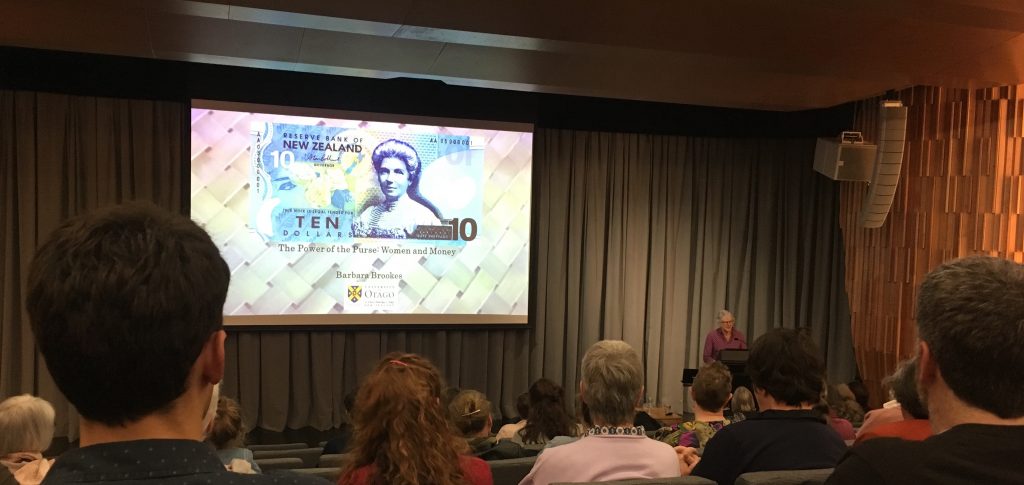
Barbara Brookes giving her keynote address at the Feminist Engagements Conference held in Wellington in September (photograph by @AWanhalla)
We closed the year with the launch of Annabel Cooper’s book, Filming the Colonial Past: New Zealand Wars on Screen.
We have a number of events planned for 2019. The first is Held in Trust: Curiosity in Things, a single-stream two-day conference at Otago Museum in late January 2019 (see poster) organised by Rosi Crane. Keynote speakers are Conal McCarthy, Tony Ballantyne and Simon Ville. Have a look at the Held In Trust Programme.
Our big event for 2019 is a conference to mark the University of Otago’s 150th anniversary in collaboration with the Australasian Victorian Studies Association (AVSA). The theme is 1869 and the CFP will be circulated in early 2019. In the meantime register your interest in attending via 1869@otago.ac.nz
Conference Report: Across Cultures and Species
In late June, the Centre co-sponsored a two-day pre-read workshop at Honolulu on new histories of pacific whaling. Participants were invited to think about animal-human interactions, as well as the intersection between environmental and cross-cultural histories. The workshop was led by Ryan Tucker Jones (University of Oregon) with support from Centre member, Angela Wanhalla, and generously supported by the Rachel Carson Center for Environment and Society.
The workshop opened with a paper by Susan Lebo (State Historic Preservation Office, Hawaii) that made a case for newspapers as integral, but overlooked, sources for revealing Hawaii’s whaling history, particularly Hawaiian-language newspapers, which feature Indigenous narratives. Lissa Wadewitz (Linfield College) examined the paradox of the violence involved in hunting and processing whales and their sometimes professed sentimentality for the animals, which she set within a context of a growing animal welfare movement in the United States. Vicki Luker (ANU) narrated the story of whaling in Fiji through the experiences of a chief and chiefly politics, while Adam Paterson (South Australia Maritime Museum) discussed a collaborative project on whalers and cross-cultural history at Encounter Bay, South Australia, emphasising Ngarrinderjeri perspectives about whales. Kate Stevens and Angela Wanhalla (University of Otago) took us to southern New Zealand where they used kinship as a framework of analysis to explore Kāi Tahu women’s participation in the shore whaling industry and their association with the sea. We concluded the first day with Nancy Shoemaker‘s (University of Connecticut) paper on the global trade in whale products and Akamine Jun‘s (Hitotsubashi University) interrogation of coastal whaling in Japan and how this shaped particular food cultures.
Day two opened with a session on Japan. Jakobina Arch (Whitman College) discussed the role of pelagic whaling in advancing Japan’s territorial expansion in the Pacific, while Noell Wilson (University of Mississippi) considered whaling cultures in the 19th century Hokkaido maritime region, focusing on the Ainu. In the second set of papers, Bathseba Demuth (Brown University) addressed capitalism in the early north pacific through the perspective of bowhead whales, inserting whale agency into human history. Jason Colby (Victoria) turned to the capture of grey whales for Seaworld in California, how this shaped scientific research and influenced human understanding of whales during an international movement focused on conservation and protection. The workshop closed with two papers that considered whaling and whales within contemporary Indigenous contexts. Jonathan Clapperton’s (Independent historian) paper addressed Puget Sound Salish Culture and legal claims to being whaling people, while Billie Lythberg (Auckland University) and Wayne Ngata (former Chair of the Māori Language Commission) told the story of Paikea, a whale and human ancestor, embodied by a tekoteko (carved human form) held by the American Natural History Museum in New York, who they hope to return home to his people. The workshop closed with a keynote address from Joshua L. Reid (University of Washington) at the Bishop Museum that centred Indigenous experience and perspectives at the heart of new histories of Pacific whaling.
Globalising Otago Museum
The latest instalment of the Global Dunedin Lecture Series was given by Dr. Rosi Crane (Honorary Curator, Otago Museum) on Sunday July 8th. Her subject was the global trade in animal skeletons, exotic birds, and pelts that underpinned the establishment of Otago Museum’s early collections. This was a truly global trade in which the museum’s earliest curators were enthusiastic participants. In exchange for moa bones and whale skeletons, Otago Museum received exotic overseas specimens. An early example was a giraffe skeleton from a Paris museum acquired in 1874. A key currency, highly desired by international museums, moa bones were sent to Liverpool, Sydney, Aberystwyth, and many other locations. Specimens were also obtained opportunistically, but also through a network of commercial dealers located across the globe. Many thanks to Rosi for sharing her research with a large crowd who were left enthralled and astounded by the global reach of Otago Museum’s collection.
Global Dunedin Series
In June, the Centre was delighted to host one of our favourite historians, Dr. Kate Bagnall, who was visiting Dunedin to conduct research at local archives for her current project tracing Chinese naturalisation across the British colonies. Kate also kindly presented on an aspect of this research in our Global Dunedin speaker series. In her talk she traced the legal and personal histories of naturalisation, connecting the Dunedin experience into a larger Australasian setting, arguing that tracing naturalisation processes and records helps to uncover different histories of migration and mobility from the standard narrative of single male sojourners. This is particularly important research because Chinese presence in the British colonies is often told through a focus on exclusion and immigration restriction. Incredibly, Kate also presented fresh research barely hours old from her visit to the Dunedin archives, revealing that there were 450 Chinese who naturalised in New Zealand prior to 1908, with 197 of those in Otago. The first in Otago was Louis Gay Tan in 1870. We thank Kate for a wonderful lecture and wish her all the best for the research project.
Our next Global Dunedin lecture will be given by Dr. Rosi Crane on July 8 on the international trade in museum specimens during the nineteenth century. When the Otago University Museum opened in its new building on Great King Street in 1877, amongst other things there was a giraffe skeleton, a stuffed lion, several monkeys, and innumerable birds from Australia, Europe, India and New Zealand. From the outset the collections were international. Many of the exotic animals came to Dunedin from commercial dealers from London, Sydney, Bremen and Prague. Some of the purchase money came from limited museum funds but most came from trading moa bones. Kiwi and kakapo skins had their value too but they were not as valuable as moa. A few scraps of correspondence has survived which tells us the price that these animals fetched, what else the dealers had to offer and what the curators wanted to fill perceived gaps. The business of supplying museums with specimens was extensive and Dunedin was part of this global network of supply and demand. The story of how historical commercial trade practices have impacted on the Museum is told here for the first time.
CFP: Translation and Transculturation in, through, and by Print
The University of Otago’s Centre for the Book has announced a Call for Papers for its seventh annual research symposium, which will be held on 1-2 November on the theme “Translation and Transculturation in, through, and by Print”. The keynote speaker is CRoCC member Associate Professor Lachy Paterson, an expert on Māori newspapers and transculturation.
Call for Papers: Translation and Transculturation in, through, and by Print
1-2 November 2018
Relevant topics might include, but are not limited to:
• The impact of print in NZ in languages other than English
• The impact of print in scripts other than the Roman alphabet
• Collectors and collecting across cultures
• How books travel from one language to another
• Whether transculturation is separable from translation, i.e. can ideas travel irrespective of language?
• The extent to which print communicates across cultures more or less effectively than other media
• The effects of national language policies on the power of translation
• Any aspect of technologies for cross-cultural printing and/or translating
• The extent to which print records or distorts cross-cultural encounters
• Motivations for translation (evangelisation, education, propaganda, support)
• Whether translation inhibits or facilitates transculturation
All of these topics are of potential interest for the Centre for the Book symposium. Please email a 250-300 word abstract to books@otago.ac.nz. Abstracts must be received by 1 September 2018.
If you have any questions, please contact Dr. Donald Kerr (donald.kerr@otago.ac.nz) or Dr. Shef Rogers (shef.rogers@otago.ac.nz).
New Publication on Indigenous Mobilities
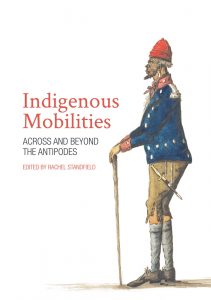 In November 2014, CROCC co-hosted the Indigenous Mobilities symposium at Otākou Marae. This event attracted a number of Australian historians as well as some CROCC scholars, looking at Māori and Aboriginal mobilities of the past. ANU Press, in conjunction with Aboriginal History, have published this research as Indigenous Mobilities: Across and Beyond the Antipodes. This edited collection can now be downloaded free in PDF or eBook form either in its entirety or as individual essays, including those of CROCC members, Tony Ballantyne, Angela Wanhalla and Lachy Paterson.
In November 2014, CROCC co-hosted the Indigenous Mobilities symposium at Otākou Marae. This event attracted a number of Australian historians as well as some CROCC scholars, looking at Māori and Aboriginal mobilities of the past. ANU Press, in conjunction with Aboriginal History, have published this research as Indigenous Mobilities: Across and Beyond the Antipodes. This edited collection can now be downloaded free in PDF or eBook form either in its entirety or as individual essays, including those of CROCC members, Tony Ballantyne, Angela Wanhalla and Lachy Paterson.
Kate Bagnall to give Global Dunedin Lecture
We’re really delighted to be hosting Kate Bagnall (University of Wollongong) for our next Global Dunedin Lecture at Toitū on Sunday 10 June. Kate is currently researching the stories of Chinese migrants who sought citizenship in Canada, Australia and New Zealand between 1860 and 1920. As she notes, the history of Chinese naturalisation in British settler colonies of the Pacific Rim is hidden, mostly because it has been seen through the lens of Chinese exclusion, a history of when it was prohibited by law rather than of when it was allowed. In this project, Kate is exploring the lives of naturalised Chinese, intertwining biographies and case studies with historical analysis of naturalisation law and policy, linking lives with legislation. Her aim is to understand why and in what circumstances Chinese migrants became British subjects, and what it meant for them.
Kate will discuss aspects of this research project at her Global Dunedin Lecture “Gold Mountain Guests”. This is a free event and open to the public. Hope to see you there!
Held in Trust: Curiosity in Things Conference
Call for Papers
HELD IN TRUST: CURIOSITY IN THINGS
A conference co-sponsored by Otago Museum and the Centre for Research on Colonial Culture, University of Otago
24-25 January 2019
Barclay Theatre, Otago Museum
The history of museums has largely been framed under the rubric of colonial domination or building cathedrals of science. But what are the bigger stories that motivated the creation of the collections?
Objects have the capacity to tell stories of lives and communities that are interconnected over space and time. Objects are the tangible material world of scientific endeavour and during the nineteenth century trade in them boomed, yet accounts of the political context surrounding their discovery and translocation are overlooked.
Looking beyond object biographies, tales of eccentric collectors, acquisition and institutional histories, this conference foregrounds the global context of commercial trade and exchange networks that contributed to the patterns of knowledge discovery and creation. What then are the bigger stories of culture, economics and politics that formed our colonial museums?
We invite contributions that address the broad theme of knowledge production in the colonial museum.
Keynote speakers:
- Professor Tony Ballantyne FRSNZ Co-director Centre for Research on Colonial Culture and Pro-Vice Chancellor Humanities, University of Otago.
- Professor Simon Ville, Senior Professor of Economic and Business History, School of Humanities and Social Inquiry in the Faculty of Law, Humanities and Arts, University of Woollongong.
- Associate Professor Conal McCarthy, Director of the Museum and Heritage Studies programme at Victoria University of Wellington.
Please send your abstract (max. 250 words) and one-page CV to crocc@otago.ac.nz by September 15th, 2018.
For further information, please contact Rosi Crane (Rosi.Crane@otagomuseum.nz).
Angela Wanhalla keynote speaker at Law & History Conference
The next Australia and New Zealand Law and History Society conference is meeting at the University of Wollongong in December hosted by that university’s Centre for Colonial and Settler Studies. Its theme is “Exclusion, Confinement, Dispossession: Uneven Citizenship and Spaces of Sovereignty”, with the call for papers closing on 20 July. It’s great news that Angela Wanhalla, CROCC co-director, will be a keynote speaker at this conference, drawing on her Rutherford Fellowship research on marriage in conjunction with the conference themes.

